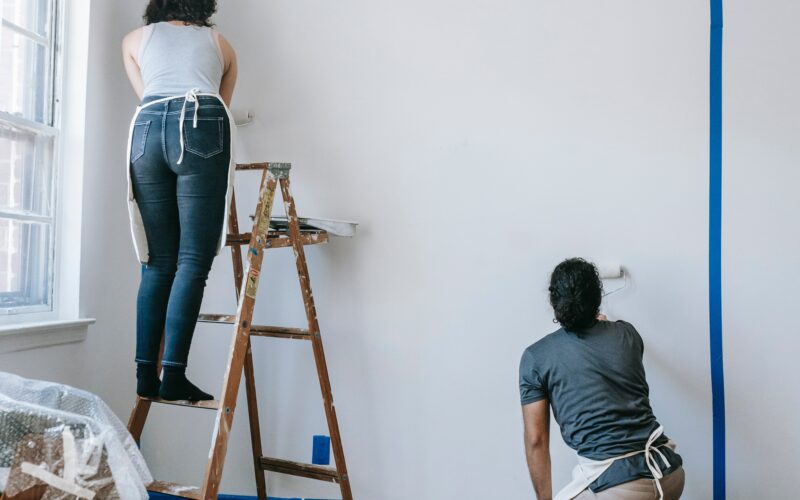As you weigh whether completely gutting and remodeling a kitchen is the right choice, you may wonder if the $30,000 you plan on spending will increase your home’s value by $30,000. After all, a home is an appreciating asset and an updated kitchen feels like a great investment.
But is it?
Before addressing the question of whether renovations increase a home’s value, it’s first important to understand who decides what your home is worth.
How Much Is My Home Worth?
You might think immediately of a home appraiser when you consider your home’s value. However, a home appraiser is only one piece of the home value puzzle. Your home may be worth different amounts depending on the circumstances.
Home Appraisals
Whether you’re refinancing your home or in the process of selling, a home appraiser will come out to give you an official valuation based on specific criteria. They’ll assess the liveability of your home and check to make sure permanent fixtures like sinks, toilets, and garage doors work. They’ll also examine:
- Location
- Square footage
- Heating and cooling systems
- Number of bedrooms and bathrooms
An appraiser will compare your home to similar homes in your area, and comparatively price your home. They’ll take into account factors such as how close your home is to a park or lake, or if it’s next to a busy freeway. This Forbes article tackles the issue of how to get the most out of your home appraisal.
Tax Assessments
Everyone prays for an amazing home appraisal when they sell, but hopes for a mediocre tax assessment while living in their home. Your property tax rate is based on your tax assessment, so this valuation can have a real impact on your annual expenses. In most counties, tax assessments are calculated at 80-90% of a home’s market value, and the valuations may lag a year or two behind market data. However, counties and states across the country frequently assess home values differently, so you’ll need to learn how your county evaluates home prices for tax purposes.
Homeowners Insurance
Finally, your insurance agent will also put a price tag on your home, but this value is connected to the replacement value of your home. If your home is destroyed in a fire or other disaster, your homeowners insurance will replace the physical dwelling on your property.
The insurance company will ask questions such as:
- How old is your home?
- Do you have a garage?
- How tall are your ceilings?
- Do you have fire extinguishers, carbon monoxide detectors, or other safety features?
- How old is your roof?
- What’s the square footage of the property?
- What kind of flooring do you have?
- Has your kitchen been updated?
- How close is your home to emergency services?
While you can add value to your home by replacing your roof, changing how close you are to emergency services is more difficult. Homeowners insurance is based on risk assessment, so a new bathroom will not move the home value as much as replacing a fire hazard like an old chimney.
Which Renovations Earn Top Dollar?
Official assessments like a home appraisal, the county assessor, and homeowners insurance may all value your home differently. The final valuation is what a buyer is willing to pay for your renovated home.
You may be surprised by which home remodeling projects see a return on investment (ROI). According to JLC’s Remodeling website, a new garage door and stone veneer will see a better return than a major kitchen remodel. Buyers often prefer outdoor projects like landscaping or front doors over indoor projects like new master suites.
When Should You Renovate?
The question remains: Should you remodel your home?
Sometimes a home desperately needs updating. Bathrooms with broken faucets or damaged toilets should be a remodeling priority. Repairing or updating broken fixtures can see an immediate ROI.
However, if your purpose is to secure a higher selling price, you’ll need to carefully consider whether the projects you want to undertake truly add value to your home. Do you want to make the home more appealing to buyers who are willing to pay top dollar for it? Or are you trying to appeal to a home appraiser? Check out current home trends for a better view of what buyers want.
A word of caution: It can be possible to over-renovate a home. If you live in a mid-$250,000 neighborhood, and you add in features like marble floors and coffered ceilings, a home appraiser cannot find comparable homes on which to base your market price.
The Bottom Line
Some renovations can increase your home’s value, like increasing the square footage or replacing a 30-year-old roof. Other renovations will never see a positive ROI. You should approach extensive remodeling projects with your purpose in mind, and a clear understanding of how the renovation will affect your quality of life, your home’s value, and your ability to sell your home.










